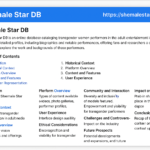A financial blockage is a moment when available financial resources are no longer sufficient to cover expenses, debts, or to sustain regular economic activity. This can occur at both the personal and business levels. Often, financial blockages are not immediately apparent, and identifying them early on is crucial to preventing the situation from worsening.
In this article, we will help you more easily recognize the signs that indicate you may be facing or are near a financial blockage.
Signs of a financial blockage
- Delays in paying debts
One of the most obvious signs of financial blockage is the inability to pay debts on time. Whether it’s loans, bills, rent, or other financial obligations, frequent delays in payments can clearly indicate that cash flow is insufficient to meet all financial responsibilities. These repeated delays can lead, over time, to the accumulation of interest and penalties, making the situation harder to manage. In severe cases, failure to meet financial obligations can lead to insolvency.
What does this mean? Insolvency is an advanced stage of financial blockage and often leads to bankruptcy or forced restructuring of business operations. To avoid this, it’s essential to take timely action to reduce debts, restructure payments, find solutions to improve cash flow, and, most importantly, consult a financial expert who can guide you through the prevention of such a serious situation.
- Increase in short-term debts
If you find yourself increasingly relying on short-term loans or excessively using credit cards to cover everyday expenses, it is a sign that your financial situation is unstable. Such loans can become costly due to high interest rates and contribute to the rapid accumulation of debt.
- Depletion of savings or financial reserves
If your savings are nearly depleted or your emergency fund is no longer available, this can indicate a precarious financial situation. A financial reserve should exist to handle unforeseen expenses, and lacking one can quickly lead to a blockage.
- Inability to make investments
Another significant issue arises when you don’t have enough capital to invest in growth opportunities or necessary improvements. Whether it’s about upgrading your home, investing in education, or developing a business, the lack of financial capacity to invest may reflect a difficult financial situation.
- Decline in income and large financial fluctuations
If your income is unstable or has decreased significantly over a short period, while expenses remain constant or even increase, a financial blockage may occur. These fluctuations can lead to difficulties in managing the budget and create gaps in financial planning.
- Financial stress and money-related anxiety
A more subtle but significant sign of financial blockage is constant stress related to money. If you feel overwhelmed by negative thoughts regarding your finances, or if you’re constantly worried about how to manage expenses or debts, you may be facing a delicate financial situation.
A financial blockage can arise from various reasons, but most of them can be avoided or effectively managed if identified in time. The signs of financial blockage should not be ignored, and the right actions can prevent more serious situations. By closely monitoring expenses, creating an emergency fund, reducing debts, and continuing financial education, we can maintain financial health in a stable balance. Taking timely action can help us overcome difficult periods and ensure a safer financial future.












